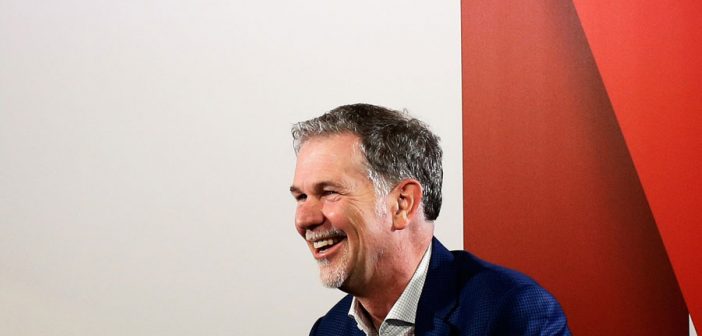Streaming service Netflix is famous for its unique culture. The most well-known example is the company’s no-vacation policy, which allows employees to take off as many days as they choose, whenever they choose. That policy is just a symbol of a broader attitude in the company, according to CEO Reed Hastings.
“There’s a whole lot of that freedom,” Hastings said on stage Saturday, at the TED conference in Vancouver. He purposely built Netflix to have a culture of open information sharing after his first company, Pure Software, struggled because it was too obsessed with creating processes to prevent mistakes from happening. “We were trying to dummy-proof the system, and eventually only dummies wanted to work there,” he said. Workers across the company are given updates on a wide range of Netflix’s projects, not just the ones their department is working on.
The Netflix culture of information sharing builds a sense of responsibility among employees, Hastings said. “We’re like the anti-Apple. They compartmentalize, we do the opposite. Everyone gets all the information.” He added: “I find out about big decisions made all the time that I had nothing to do with.”
“To disagree silently is disloyal.”
—NETFLIX CEO REED HASTINGS
That’s why Hastings promotes courage as a fundamental value at the company. “We want people to speak the truth, and we say, ‘To disagree silently is disloyal.’” He added, “It’s not ok to let a decision go through without saying your piece. We’re very focused on trying to get to good decisions with a good debate.”
Netflix, which recently turned 20, has had some time to foster this culture. In contrast, Facebook, where Hastings is a board director, is 14. When asked about Facebook’s recent privacy scandal and two years of negative headlines, Hastings noted that Facebook and other social media companies “are clearly trying to grow up quickly.”
He compared social media to television, which was viewed in the 1960s as “a vast wasteland” sure to rot the minds of humanity. “It turns out everybody was fine and there was some adjustment. I think of it as, all new technology has pros and cons and social media is figuring that out,” he said.
But has Facebook been completely unfairly criticized? “Oh, it’s not completely unfairly,” he said. He added, in a show of support for Facebook’s CEO, “Mark [Zuckerberg] is leading the charge on fixing Facebook and he’s very passionate about that.”
Hastings has not withheld criticism in his capacity as a board director in the past. He questioned fellow board director Peter Thiel’s support of Donald Trump and fitness to serve on the Facebook board, even offering to resign after the communications became public, according to the Wall Street Journal.
Hastings could leave Facebook’s board for another reason. As Facebook has moved deeper into original content, including acquiring rights to stream sporting events, speculation has swirled that Hastings could step down for competitive reasons. Indeed, Facebook COO Sheryl Sandberg resigned from Walt Disney Co.’s board in March, citing conflicts of interest. Last spring, Hastings said his board seat had not created a “big conflict, yet” because Facebook was acquiring different types of content than Netflix.
As seemingly every tech giant converges around original video content, Netflix, the “anti-Apple” company which started out mailing people DVDs, is finding itself up against all of Silicon Valley. Last year Apple announced it would spend $1 billion acquiring and developing original content for a forthcoming streaming service. Amazon spent $4.5 billion acquiring non-sports content in 2017 and Hulu spent $2.5 billion.
But Netflix is not shrinking from the competition. The company has plans to spend around $8 billion on content with the aim of making half of its offerings original. Hastings doesn’t think the eye-popping spending is enough. “There are so many great shows on other networks, so we have a long way to go,” he said. Besides, he added, “that’s spread globally so it’s not as much as it sounds.” (The TED audience, which included numerous billionaires, politely chuckled.)
Hastings clearly enjoys of the spoils of fierce competition. “I love competing, I love going up against Disney and HBO, that’s what gets me going,” he said. He has already taken on Hollywood—the most powerful companies in Silicon Valley are next.
–
This article first appeared in www.wired.com
Seeking to build and grow your brand using the force of consumer insight, strategic foresight, creative disruption and technology prowess? Talk to us at +9714 3867728 or mail: info@groupisd.com or visit www.groupisd.com




